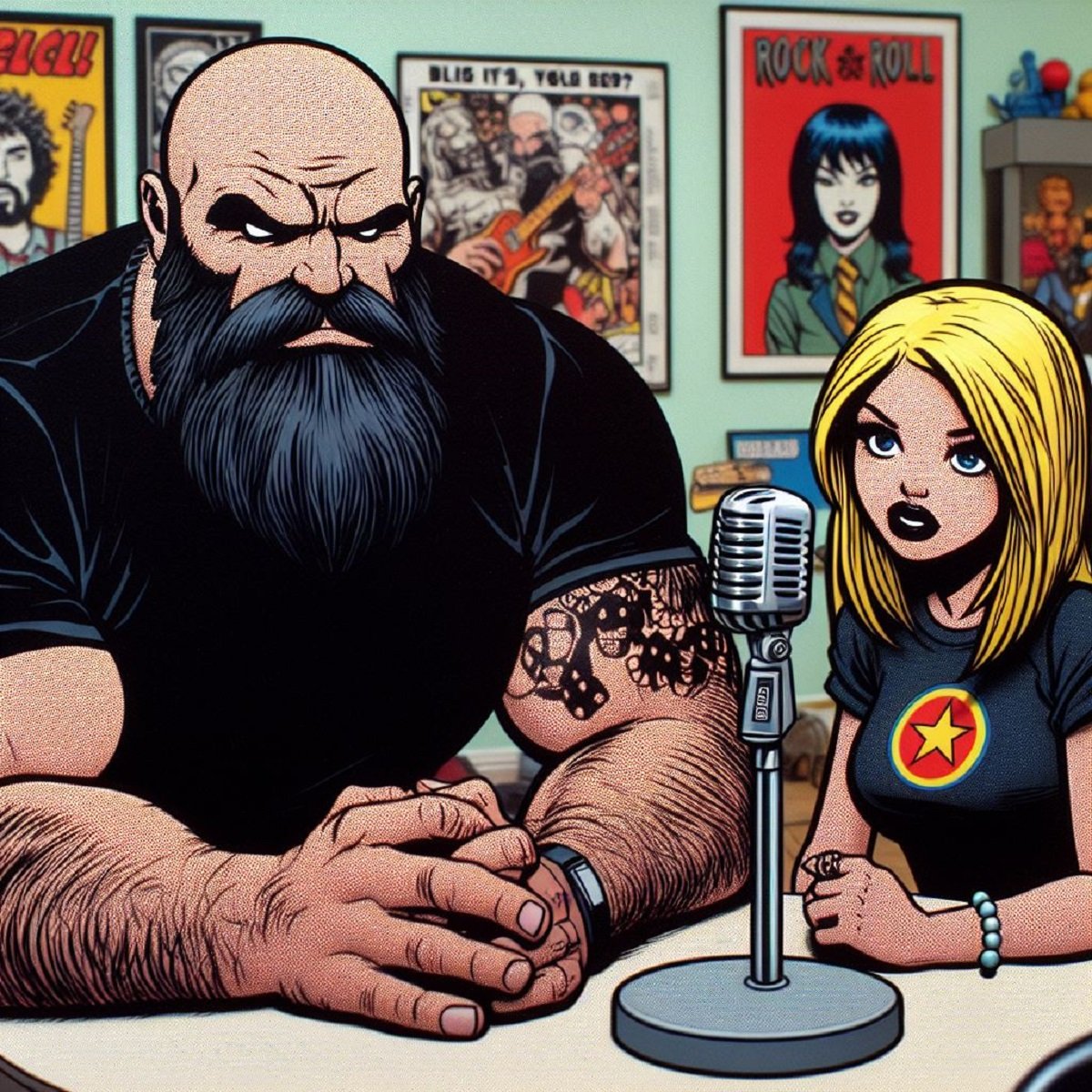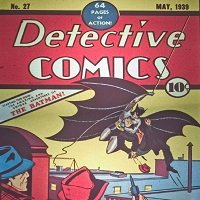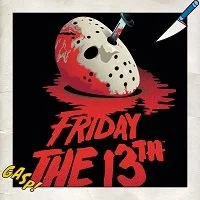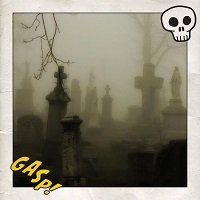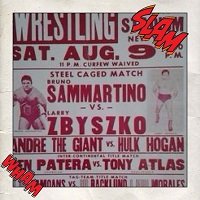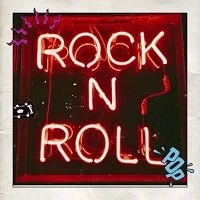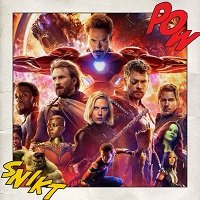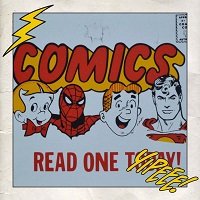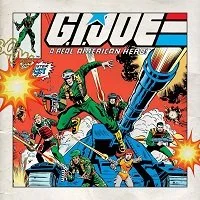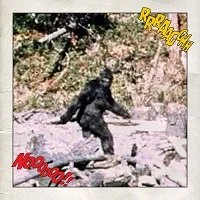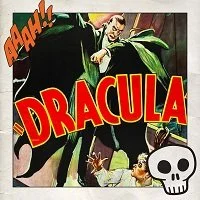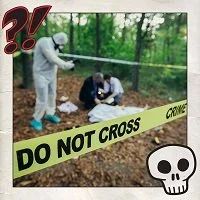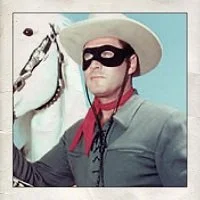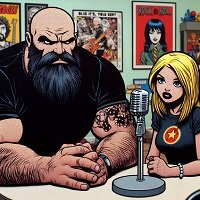On Saturday, July 6th, 2024, I was having a late lunch with my mother and one of my brothers Nate in Sauk Rapids, Minnesota, at Lost Times Tavern and sitting there visiting with them got me thinking about professional wrestling and it connecting with people.
Lost Times Tavern had several older WWF and WCW action figures up at the bar, from Jesse Ventura’s run in 1998 for Minnesota Governor to an Andre the Giant Mattel figure to a LJN figure of Hulk Hogan and Iron Sheik to early-90s WCW Galoob figure of Sting and Ric Flair. Seeing those figures up at the bar as decorations made me appreciate becoming a wrestling fan in the early 90s due to the influence of both of my brothers and growing up during the Monday Night War era of late-90s professional wrestling in the United States.
Some of my earliest memories as a wrestling fan watching any of the weekly television started in the early years of Monday Night Raw on the USA Network. Seeing stars like Shawn Michaels to a Yokozuna to a Razor Ramon, Jeff Jarrett to Diesel to the Undertaker, those stars in their own ways capture my imagination and eyes. Whenever asked in Elementary school on what I wanted to be when I grew up, it was either growing up and becoming a Ghostbuster off the 80s movie franchise or growing up and becoming a professional wrestler.
Jeff Jarrett - Photo by Karl Stern
Since then, I ate, drank, read, watched, and studied pro wrestling. Being a giant fan as I was, I jumped at the chance to rent another video cassette or another video game on the weekends. Watching tapes reliving matches that my brothers often talked about or playing the latest games with them when they had to babysit me, I soaked in the excitement of spending time with them and ate up any knowledge I gained by talking history and storylines with them.
Throughout my years in grade school and in my studies in college, I dug more into promotions of yesteryear and learned as much as I could through books, documentaries, podcasts. Meeting who became Mr. Beverly Hills my sophomore year in college, my co-host of Main Event Status Radio podcast we did at MainEventStatus.com got me into listening to wrestling podcasts, more so reviews of random shows from our wheelhouse and outside of our wheelhouse.
Around then was when I decided I wanted to become a podcaster and wanted to cover what got me into what I loved growing up, reviewing wrestling from the 1990s. A topic from this timeframe throughout the different wrestling newsletters was the topic that Vince McMahon believed that Ted Turner and World Championship Wrestling was trying to put his World Wrestling Federation out of business. I wanted to bring that topic up now because it was touched on briefly in one of the episodes, but it was just in passing.
Dean Malenko and Chris Benoit - Photo by Karl Stern
I reached out to Mike Sempervive of F4WOnline.com about that topic and here’s what Mike had to say:
“Well, Vince is massive inferiority complex when it comes to a lot of things, including Ted Turner. You know, Ted Turner can call up and say, I’m in the wrestling business now, I’m gonna kick your ass Vince and the reality is once he hangs up the phone, he’s got a zillion other things to worry about. He has a zillion other people to meet.
Vince didn’t have that. And he hated that a lot of that life. You saw how he was with Linda [McMahon] when he actually had to be in front of the cameras and actually had to put on a front and all that sort of stuff.
He couldn’t stand it to the point he, you know, as soon as it was over, he had to make fun of it on his television show to make everybody remember that how much he hated this stuff. And for Ted Turner, he liked wrestling. He wanted to win at wrestling. He wanted to win at everything he ever did. So I’m sure he did want to beat Vince. But the fact of the matter is at the end of the day, when he stands back, he had an entire empire.
You know, Vince’s empire was WWE, and he was great at it. But you know, Ted’s empire was a lot of other things. But what Vince was able to do was the same thing that Paul Heyman was able to do. Take that and use that as a rallying cry and convince himself. With Paul, it was, I don’t think he convinced himself as much that WWE, which he was getting paid by, and WCW was the evil empire, but it worked to feed into his, use that against or for dealing with his talent. With Vince, it was a driving thing with him.
With, you know, it’s like the Michael Jordan documentary where it’s like you, you know, or a lot of athletes where you essentially make up something in your mind. You take bulletin board material. You give yourself a reason to be offended. You give yourself; you take the littlest thing, and you take it as a personal slight, whether you intend to do it, or maybe it’s just subconscious. And then that drives you. And for Vince, there was one, you know, again, their only competition that was left was WCW that really mattered at all and was really affecting him in any way.
So yeah, he took that and wanted to run with it as if Ted Turner was trying to kill him and put him out of business, where I think Ted never really would have not really cared about putting Vince out of business. He just wanted to have a good wrestling product that got really great ratings. And again, that he was incredibly, incredibly loyal to.”
Recently I heard a lot of chatter online about the Rock’s ‘7 Bucks Productions’ tag-teaming with Vice and producing a four-part special on the rise and fall of Ted Turner’s World Championship Wrestling called “Who Killed WCW?” If I’m gonna be honest, some of the thoughts that was going through my head when I heard about that special was: who really wants another documentary on that? Why is there still interest on what lead to the success and the downfall of World Championship Wrestling? We had the “Rise and Fall of WCW” by the WWE, we had Bryan Alvarez and RD Reynolds’ “Death of WCW,” and we just got the Guy Evan’s new book “Nitro: The Incredible Rise and Inevitable Collapse of Ted Turner’s WCW.”
Besides that, are a ton of podcasts and YouTube videos reviewing that WWE documentary and those books. So why another documentary? Haven’t we put to rest what became the rise of the Monday Night War era of United States professional wrestling scene and heard all that could be said about it?
I am pleasantly surprised to report that I was wrong about those thoughts. For episode 386 of Wrestling With the Dawg Podcast at FlairFlop.com and for Miss Tonya and the DragonKing Karl Stern’s podcast network, I had Eric Allen and Joe Drilling of What a Maneuver podcast and of OnTheStick.com reviewing that four-part series. We gave our reviews and opinion on that series. But here with this review I wanted to break down more of my opinion and sprinkle in some other thoughts and insights.
What I was most surprised at hearing that Vice TV and Dwayne “the Rock” Johnson and Dany Garcia’s Seven Bucks Productions were producing a four-show series on “Who Killed WCW?” because I felt that topic was discussed to death by WWE documentaries, tons of wrestling podcasts covering, and many books penned about that topic. I believe everything could have been said was said and we weren’t going to hear anything new or hear any new voices.
Thankfully I was surprised that Vice TV and the Seven Bucks Productions team was able to get a few past Turner executives on for the series. I didn’t think the rise-and-fall of World Championship Wrestling had any more fanfare to be discussed. I didn’t realize WCW was that popular and had that much of an influence on a generation of wrestling fans.
Let’s get into the review of the series:
Episode one of Vice’s “Who Killed WCW?” entitled ‘Where the Big Boys Play’ went into the history of Eric Bischoff and how he got to become the President of World Championship Wrestling. Starting out pitching Ninja Stars, the game that he and Sonny Onno put together to American Wrestling Association’s owner Verne Gange, Bischoff left with a deal with Gange and a job selling AWA television to local markets in the Midwest local TV stations. When the AWA was closing its doors, Bischoff heard from Larry Zbyszko, who was Verne’s son-in-law and worked for WCW at the time, that WCW was hiring for commentators and Bischoff threw his name in the hat and was hired.
With positions opening, Bischoff moved up the ladder in management and that’s how he became President of WCW (in a super condensed version). Eric needed new ways to bring eyeballs to their TV product and signed deals with Hulk Hogan (giving him a giant deal and creative control) and Randy Savage when their deals with Titan Sports ended in 1994. That helped bring some new fans to WCW but the product needed another shot in the arm to give WCW a chance to compete on Monday nights against the WWF.
Enter Scott Hall and Kevin Nash and enter the idea of adding realism into WCW’s storylines. The WCW faithful was getting tired of the rerun of Hulkamania in their wrestling promotion and with Scott Hall and Kevin Nash “invading” the company, the New World Order was birthed at Bash at the Beach 1996 when Hogan turned heel and dropped the leg drop around the world and joined up with the Outsiders as the third man. That was the shot in the arm that WCW needed to get hot and start beating WWF Monday Night Raw in TV ratings.
The original plan to start giving WCW fans hope that someone on the WCW roster could beat the nWo was Sting at their SuperBowl, Starrcade 1997, where he beat Hollywood Hogan for the World Heavyweight Championship. For whatever reasons and for multiple reasons, Sting wasn’t in the right headspace to beat Hogan that night in Washington DC and Terry Bollea did “Brother Terry things” and used his creative control to change the finish of that match because “that doesn’t work for me, brother.”
A few wrestlers who were interviewed in the first episode pondered about Hogan having Bischoff’s ear and Eric couldn’t say “no” to the Hulkster, for right or for wrong. I understand where Eric Bischoff was at because Hulk Hogan was the golden goose who helped turn WCW from the red and helped WCW turn its first profit. Hulk Hogan was the one who helped put new eyeballs onto WCW television and it was Hulk Hogan’s willingness to turn heel in the summer of 1996 that push WCW into new heights that even Bischoff couldn’t imagine. Even though Terry Bollea had creative control in everything that Hulk Hogan did and the storylines the Hulkster was in, Bischoff should have looked for what was best for the business of WCW and what was best for WCW TV ratings.
Episode two of “Who Killed WCW?“ was entitled ‘The Streak is Over‘ and I couldn’t think of a better title for that episode than that. In episode two, Vice TV touched on WCW trying to figure out creatively what they could do to combat WWF’s rise in TV ratings on Monday nights with the rise of Stone Cold Steve Austin as the WWF’s top star and their World Champion, along with the greatness of Austin vs. Mr. McMahon (the television character name of WWF owner Vincent Kennedy McMahon) feud on WWF TV.
Rick Steiner - Photo by Karl Stern
WCW had their own training facility where they trained people who wanted to get into the wrestling business called the Power Plant. Turner was able to ink a deal with Bill Goldberg, who was a defensive tackle for such NFL teams like the Sacramento Gold Miners and most famously the Atlanta Falcons (Atlanta, coincidently enough was where Ted Turner’s company was based).
Bill Goldberg had the “it factor” that’s been talked a lot about in wrestling circles and wrestling talking heads. Goldberg had charisma. Goldberg has the presence that held viewers put their TV remote down when they turned the channel and seen him on screen. When Goldberg debuted on WCW TV, he started to squash (a one-sided match up; when one performer dominates the other and quickly defeats them with virtually no resistance) his opponents and fans lived vicariously through Goldberg. Bill Goldberg was WCW’s Superman and he was one of their home-grown talent that fans got behind and wanted to see him rise and dethrone the nWo in 1998.
On July 6, 1998, in Atlanta, Georgia, WCW Monday Nitro was in the Georgia Dome and on that three-hour edition of Nitro, Goldberg defeated Hollywood Hogan in the main event to win the World Heavyweight Championship and it seemed like WCW finally had an upper hand against Hollywood Hogan and his misfits in the New World Order.
Through the second half of 1998 Goldberg continued to squash his opponents to retain the WCW Championship while the nWo brought in stars like Dennis Rodman from the Chicago Bulls into the nWo and Karl Malone from the Utah Jazz to team up with WCW stars like Diamond Dallas Page. WCW even brought in NBC’s Late Night talk show host Jay Leno to team with Dallas Page against Eric Bischoff and Hollywood Hogan in Sturgis, South Dakota in the summer.
Sometime in the summer of 1998, Turner executives called Eric Bischoff into a meeting, and they had no knowledge of the wrestling business and started to tell Eric how to change the WCW product. They wanted to aim their storylines to different fans and not be as raunchy as the WWF TV product and storylines. Because of that meeting, Eric started to get creatively burned out. Being friends with the talent (which happened when Bischoff became a TV character once it was announced on television that he was more than a commentator, he was the WCW President and put himself into the popular nWo), Kevin Nash noticed that Bischoff needed a hand in creative and offered to help.
In the fall, Nash started to ponder what else could they do with the character Goldberg. He’s undefeated and the company’s top champion. WCW’s Superman eventually must be beaten, and the belt must go to someone else. Wrestling psychology often says that having a heel as the World Champion and a babyface chasing him is what brings money to the table – that’s where they get ratings and fans buying tickets. At Starrcade 1998, Goldberg had his first loss and dropped the title. To whom, you may ask? Kevin Nash was the man who beat Goldberg for the first time and to be the one who took the WCW Championship off him.
With wrestling psychology, the money should come with Goldberg’s chase to recapture the WCW title, right? We should get the Starrcade 98 main event rematch sometime down the road, right? We got that eight days later WCW Monday Nitro, or at least WCW Creative built that up to happen.
Creative went another way for that rematch. The nWo had spilt into two factions. We had the white and black being the bad guys lead by Hollywood Hogan and we had the red and black being the good guys and called the nWo Wolfpac, led by Kevin Nash. Goldberg was arrested in storyline and Hogan was back on TV to announce he was running for US President in the year 2000 (in reference to Jesse Ventura being elected as Governor of Minnesota in 1998) and the Hulkster stepped in for the arrested Goldberg. We got what’s been called the FINGER POKE OF DOOM, a swerve. Hogan poked Kevin Nash in the chest and he took a bump like he was knocked out with a Mike Tyson right hand. Hogan covered Nash and became the new WCW Champion and unifying the two nWo factions.
That swerve got a lot of backlash from fans because fans didn’t see that finish coming. With decisions like that happening on TV, a lot of fans started to turn the channel from TNT to USA and chose to watch what WWF was putting on. With WCW being a TV product ran by a cable juggernaut, Turner executives wanted a new coat of paint to head WCW because they felt Bischoff wasn’t cutting it anymore. Turner executives decide to send Bischoff home and signed the guy who was the head of creative for the WWF, Vince Russo.
Episode three was called “New Blood” and focused WCW bringing in WWF writer Vince Russo to save WCW and their TV ratings. The brazen New Yorker Vince Russo clashed with WCW’s top stars and WCW entered a forbidding downward spiral. With Nitro being three hours on Monday nights and the debut of WCW Thunder on TBS with a weekly two-hour program, among having WCW Saturday Night (another two-hour weekly program), WCW Worldwide, and a lot of other syndicated TV programs, fans were getting a lot of WCW storylines every week on their Turner channels.
That lead to the discussion on episode three of “Who Killed WCW?” on bringing in Vince Russo to be the head of creative. The show went into detail of how Vince Russo started as a magazine writer for WWF Raw magazine and WWF started to consider what they could do to change up their creative to combat what’s going on TNT with their competition. Russo said on the record that Vince McMahon opened one of Russo’s articles and asked Russo about it and Russo replied that he was writing what he’s writing because what’s going on WWF TV was boring and Russo wanted to entertain himself. That lead to him being welcomed to WWF Creative and him and Ed Ferrara being the two-man writing team and that turning the company around with their hot-shotting storylines inspired by the TV show Jerry Springer.
Vince Russo joined WCW as the Head of Creative and within a few months, Turner Executives wanted to create a creative committee and Russo told them that his contract states that he was hired as the head of creative and being a part of a creative committee didn’t interest him, so he was going home and expected WCW to continue to pay him and they had to figure out how to make the creative committee work.
Turner Executives wanted to bring back Eric Bischoff to help direct Russo’s creative and be a filter for him. They wanted to bring Bischoff back to be Russo’s supervisor. Russo claimed on the episode that he wasn’t ever told that when Turner called him to come back to work and if he was willing to work with Eric.
The Bischoff-Russo tag team lead to storylines like the Millionaire’s Club versus the New Blood – having the veteran talent team up against the young talent and putting the WCW title on David Arquette, one of the movie stars that starred in Ready to Rumble, a movie based on WCW and featuring WCW talents.
To no one’s surprise, everything came to a head at the WCW pay-per-view Bash at the Beach 2000 where Hulk Hogan and Eric Bischoff agreed to have Jeff Jarrett lay down for Hollywood Hogan for the WCW Championship and Bischoff and Hogan leaving the arena because they were “fed up” with what’s going on with the storylines. To Bischoff, Russo agreed to that and was up for the storyline of months down the road, Hollywood Hogan would come back as the rightful WCW Champion at the end of the year and unify the “two World titles.”
Russo went on the pay-per-view and cut a nasty promo sprinkling in reality into his promo about Hulk Hogan (which, to Eric Bischoff, wasn’t approved of by he and Hulk Hogan since Brother Hogan has creative control over his character and the storylines he’s involved in) and that angered Eric and Hulk enough that they refused to come on TV anymore because of it (and lead to Hulk Hogan suing the company and Turner Broadcasting).
Episode four was called “The Last Nitro” and focused on the curtain falling for WCW as the cast and crew gathered to produce on last episode of Nitro and the dust settled on the fallout of the worst corporate merger of all time. We see some never-before-seen video footage of the crew setting up the stage for the final Monday Nitro. We hear from talent and crew asking around if anyone heard about the fate of WCW and nobody knew what was going on. Then they see Shane McMahon and Bruce Prichard, among other WWF head honchos, there representing Titan Sports, who bought World Championship Wrestling on Friday.
We get to hear from Eric Bischoff on trying to buy WCW from Turner Broadcasting after the merger of American Online and Time Warner since AOL/Time Warner didn’t want WCW on their books anymore since they were bleeding money, and the new executives didn’t want a major money-losing brand on their books. Everything was going well until Bischoff got a call from one of his business partners telling him that the deal fell through, and they didn’t acquire the company, which broke Bischoff’s heart since he put almost a decade of his life moving up the charts in the company from a commentator for television to president of the brand.
We heard from Brad Siegel throughout the series, who was one of the guys that Bischoff had to answer to since he was the President of Turner Entertainment Network but for episode four, we heard from Stu Snyder, who was the President of the WWF. On Stu Snyder’s Linked In profile, he posted: “Excited to share that one of my most interesting endeavors during my time with WWF is finally airing! The acquisition of WCW was one of the most exciting and surreal milestones of my career. In my humble opinion, it made sense for both Turner and WWF, and I feel the same today reflecting back on that time.”
Stu Snyder said in episode four that it would be next to impossible to keep WCW around on the new AOL/Time Warner since Ted Turner didn’t have the stroke in the new company as he head prior and that lead to the demise of World Championship Wrestling.
At the end of the episode (and the end of the series), we heard a bunch of opinions on who killed WCW. The opinions were: it was Turner people; it was the higher talents throughout the years in WCW, it was the company itself because they couldn’t function as a team since everyone was fighting themselves, Eric Bischoff, Vince Russo, a business decision, and it being a collection of people and bad decisions that made it all fall apart.
So, after the series we didn’t get a direct answer on who killed World Championship Wrestling. To wrap up this article with some questions and opinions from the series…. I didn’t realize World Championship Wrestling was so popular. I was a giant World Wrestling Federation fan and during that time frame, I didn’t understand why anyone wanted to be a WCW fan and preferred to watch WCW TV over WWF TV.
While recording episode 386 of my podcast with Eric Allen and Joe Drilling, I asked them “Why was WCW so popular?” and I loved how they answered that question. Both men talked about WCW had a variety of different things on their TV that the WWF didn’t have. WCW had the cruiserweight division with Mexican luchadores. WCW brought in such English stars like Dave “Fit” Finley and Lord Steven Regal. WCW chaptalized on Scott Hall and Kevin Nash signing with the company in 1996 and used reality into their storylines and made the fans believe they were “invading” the southern wrestling promotion. WCW used their resources to bring in such legendary stars like Hulk Hogan and Randy Savage to bring in new advisers to give them an opportunity that they never would have had if they couldn’t sign those stars.
Mike Sempervive, co-host of Wrestling Observer Live with Bryan Alverez at WrestlingObserver.com and the Wrestling News for the Arcadian Vanguard Podcast Network, recently caught up with me and I asked him the same question. Sempervive responded:
“…Because it’s an easy story to exploit. It’s not the easiest story to tell if you want to tell it to competition because two books have been written about it. One of those books, it was reprinted with more information, when it came to Bryan Alvarez’s book (the Death of WCW) and there’s still more you can say.”
“For WWE,” the wrestling historian Mike Sempervive continued, “who owns all the footage, it’s a victory lap. So, it’s very easy for them to tell the story the way they want to because it’s always going to be a victory lap. You see how ECW was treated by them, it’s always with some reverence. But WCW it’s ‘look at these laughing fools that stumbled into being bought by us.’’”
“And for film makers and documentarians, which will put the Rock into that category this time around, it’s an easy story to tell because of all of the wackiness, all of the characters, good and bad, and the fact that the company fell so spectacularly after being in its own way for so many years then finally achieving the number one spot in the world for a short period of time as a wrestling company,” Mike continued on why WCW was so popular and why people continue to visit the story of why the rise and fall of the company is still talked about these days. “It’s easy to tell the fall and to exploit and I believe that’s why they do it.”
“It’s so simple and the other thing, too,” Sempervive continued, “in this day and age, you see it with TV shows and movies, I’m not saying there aren’t few new ideas, but there’s little spins on it to say basically the same things over and over and over again and the death of WCW can be put with Montreal (Screw Job), and probably be put with Brawl Out, and many other stories, as there’ll going to be told forever.”
Giving talent creative control in their contracts was something I felt like helped the rise of World Championship Wrestling when it came to bringing in Hulk Hogan and signing him to a deal. Giving the world’s biggest talent that clause gave him motivation to have his influence on the matches he’s in and the storylines he’s involved with. I also believe that lead to the demise of the company because if, for whatever reason, “…this doesn’t work for me, brother…” comes into play from the Hulkster, he doesn’t have to be involved with it and has the final say on what he’s involved in.
I asked another wrestling historian who I consider a friend:
“A big sticking point that kept being brought up throughout the series was Hulk Hogan’s creative control. Hogan had final say with what he does and the storylines he’s involved with. That came with a lot of good and a lot of bad. How do you feel like that helped WCW and hurt WCW? “
That wrestling historian is Karl Stern of WhenItWasCool.com and he replied:
“It both helped and hurt. Without Hulk Hogan turning heel things were going to continue to be a tough struggle for WCW. With that as a truth, you had to give him what he wanted. However, it ended up hurting them badly and he abused the power. It soured with time. I don’t know what could have been done about it honestly. You had to keep him, but he absolutely abused it.”
Mike Sempervive also chimed in on that topic and said:
“It absolutely hurt WCW in the long run. How those contracts were structured, and it wasn’t just creative control. It was Favored Nations when it came to Hall and Nash, which every time somebody it ended up moving them up and it jacked up payroll to a ridiculous degree, to the point when Bret Hart they had to beg them ‘hey, no, we can’t do this time around, please. We’re trying to sign Bret and can you let this one slide?’ and Kevin Nash has said many times that were times that he did and he’s the one that got Bret paid.”
“But look what happened to Hulk Hogan,” Sempervive continued. “You can’t give talent that type of power to that level and to that degree. And to that level and to that degree, if I was a piece of talent, it’s great. You know, it’s fantastic, it’s wonderful, especially because all those guys worked for years under promoters where they had no leverage whatsoever. They were pieces of meat, they were nothing.”
“And now they have the opportunity to take time off when they’re hurt. And many exploited that. Look how many exploited insurance deals.”
“And unfortunately, they also, when it came to Hulk Hogan, especially, you know, with anybody with a creative control clause in their contract, it just, it caused havoc. And it did with WWE as well, too, when it came to Bret Hart. But you saw how WWE just blasted through that because they could, it was a privately owned company.”
Mike went on to finish his thoughts on creative control by saying:
“What was Bret going to do? Whereas with WCW, it could open them up to lawsuits, which it ultimately did.”
Buff Bagwell - Photo by Karl Stern
I do believe now one of the giant downfalls for WCW that lead to their demise was Hogan’s power to veto the storylines he was involved with. We discussed it in episode 386 but the finish of WCW Starrcade 1997, which was their WrestleMania, Hogan used his control to change the finish of the match because he felt that Sting’s head wasn’t in the game and his vibe was off when they discussed what they were going to do in the MCI Center in Washington, DC.
The year-and-a-half storyline of turning Sting from a surfer wrestler to being inspired by the film “The Crow,” Hogan killed whatever excitement WCW fans had hoping to see the savior of the company to come in and slay the face of the New World Order.
Rich Thomas from the International Object wrestling podcast sent in a question that Eric Allen and Joe Drilling of What a Maneuver podcast touched on in episode 386 of Wrestling With the Dawg podcast and Rich brought up that he believes that Eric Bischoff didn’t build WCW at all, only pumped up a bubble that lead to the rise and fall of World Championship Wrestling. Rich sent in another question and asked, “Why do people think Eric Bischoff built something sustainable or reproducible?” Joe Drilling replied to that question from Rich by saying, “because he convinced them that he did.”
I must agree with Joe on his response because that’s what humans do – we try to shine up and polish all the good things we’ve done and try to hide all the negatives we’ve done in the past. We don’t want to be remembered for the bad things we’ve put out (or the bad things we’ve done). We also see things with rose colored glasses on as well and that’s one thing I enjoy about WhenItWasCool.com and what I do for my podcast, we look at things that were cool for us and revisit it to see if it aged well. I hold Eric Allen and Joe Drilling’s opinions high about pro wrestling high during the late 90s because they covered the Raw’s and Nitro’s starting in 1996 and went through the summer of 1998 on their podcast.
Eric Allen also replied to Rich’s question by saying, “I wasn’t aware there was a big contingent of people advocating for Bischoff. A lot of us take for granted that WCW was a bad TV show from 1998 onward (especially around the main event stuff) but even at its most dire, some people were invested in the show and genuinely liked it. I went to high school with some of them! Also, there was a team sports aspect to WWF vs WCW, and some people were in WCW’s corner no matter what.
...Also people believe all kinds of weird stuff, no matter how much evidence you present to the contrary. I think Bischoff deserves a lot of applause for helping build WCW up, and deserves a lot of blame for his part in its demise.”
I feel like Eric Allen also touched on a topic of people tend to gravitate to a community, from sports team on a local level to a national level, from one set of beliefs onwards. People like what they like, for better or for worse, and I believe that’s why a lot of WCW fans quit watching professional wrestling in 2001 when WCW closed its doors. They didn’t like the WWF product, even if some of their favorite WCW wrestlers were on WWF television.
But that’s one thing I do appreciate about the Vice special on “Who Killed WCW?” that they gave Eric Bischoff a lot of TV time to talk about his rise and fall in the company and touched on some of the positives and negatives that came with his time with the company.
Eric Bischoff does deserve a lot of credit for how he turned World Championship Wrestling around and how he drove it right into an iceberg because of multitude of reasons. Wanting to bring in new viewers to the product by bringing in stars like Randy Savage with his Slim Jim deal to Hulk Hogan with his ginormous star name to not being able to keep the inmates in check in his asylum. That’s one of the things I do appreciate with the series, it gives us historians and fans an opportunity to discuss those topics.
A question that came to mind while watching the first episode was: Eric Bischoff was the genius on turning WCW as a money losing department for Turner Broadcasting and turned it around when Ted Turner asked Bischoff what Turner Broadcasting could do to be competitive with the WWF and Bischoff mentioned going head-to-head with Monday Night Raw. Of course, we still see the effects of that with Raw being live every Monday night since. Should Bischoff be given his flowers for turning WCW around and having a positive impact on professional wrestling during his tenure with WCW?
I posed that question to the wrestling historian and my close friend DragonKing Karl Stern and here’s what the DragonKing says:
“Absolutely, for all the bad Eric did in destroying WCW, the truth still remains that WCW was floundering without his gamble. Monday Night Nitro really did turn things around and it was obvious from episode one.”
I greatly appreciate Eric Bischoff’s voice throughout each episode of “Who Killed WCW?” because without his vision, WCW probably would have closed their doors years before 2001. Wanting to be different than the WWF helped give wrestling fans something different. Bischoff changed how we seen wrestling on Monday nights for the better. With his vision of the New World Order storyline and how it was birthed on Monday Nitro, we got the wrestling boom that we got.
That lead to another big question that came to mind and that was: Bischoff did bring in big name stars like a Randy Savage and Hulk Hogan to help bring eyes to WCW, as well as signing Scott Hall and Kevin Nash when their deals with WWF ended. Was that a smart decision for Bischoff (looking aside giving them big money contracts, etc.)?
I posed that question to Karl Stern as well and here’s what Karl says about that:
“Randy Savage and Hulk Hogan really didn’t mean much after very long except for giving them name value to advertisers. As far as attendance and fans, they lost their luster pretty quick. However, bringing in Scott Hall and Kevin Nash in the way they did it absolutely was something fresh and cool and turning Hulk Hogan heel was genius. The NWO took off and it changed from being a retread of old guys to something cool and fresh.”
As Karl said, WCW fans were tired of the same ol’ song and dance of Hulkamania and Macho Madness and wanted something different. Enter the Outsiders coming into “invade” the other company, the company they once worked for and didn’t see them as main event stars like they were up in New York. That was the shot in the arm WCW needed and it came at the right time.
WCW did try to write the wrong after Starrcade 1997 when they had their next golden goose in Bill Goldberg. Joe, Eric, and I talked about a big topic that was talked about by the likes of Bret Hart and Vince Russo and that was: Another sticking point from the series came was the rise of Goldberg and him being green. WCW needed something new, or someone new, on top and Goldberg connected with the audience. Goldberg hurt a lot of guys, unintentional or intentional, depending on who you ask (examples: Bret Hart and Vince Russo). Who should have been responsible for giving Goldberg more training and getting him ring time (even if its house shows or working at the Power Plant)?
Karl Stern had an amazing response to that question, and I posed it to him:
“You know, I think Goldberg gets a bad rap. While it’s true he needed real coaching and training in being safer he was no different from a lot of other game-changers like the Road Warriors. They seemed dangerous to the viewer also which made you want to see them. I wish Goldberg had never hurt Bret, I truly feel for Bret, but it wasn’t a secret Goldberg needed polishing and they had plenty of people there who could have worked with him.”
I believe that helped WCW viewers get behind Goldberg, that he had a sense of danger to him, like Karl mentioned, he had that Road Warrior danger and that fed into the “it factor” he had.
Joe, Eric, and I discussed it when we were recording the podcast and WCW had the talent and the management in place to get Goldberg the proper training during his rise of the “streak” which led him to becoming the WCW Champion. They had such stars like Ric Flair, Arn Anderson, Lord Steven Regal, to name a few, that could have spent time working with Goldberg at their Power Plant to give him the time in the ring to make sure he knew how not to hurt his opponents. I believe that falls on the shoulders of Eric Bischoff for not seeing that and not having that happen. Bischoff did have a lot going on and it’s easily understood that he didn’t catch that – but he had the people in place that could have told him that.
I do give Time Warner credit for trying to change things up regarding sending Eric Bischoff home and trying someone new as the head of creative. They needed a fresh coat of paint, and they brought in Vince Russo, hoping he was going to be the one to turn the Titanic around. I asked Karl Stern another question: WCW even tried changing up who lead creative (with bringing in Vince Russo and having a booking committee). There didn’t seem like there was much direction when it came to storylines, and I felt that eventually hurt their TV ratings. Is there anyone to blame for that?
The DragonKing replied:
“Eric Bischoff losing control of things was the biggest thing that sank WCW. However, there aren’t enough negative words in the English language to describe how ridiculous and damaging Vince Russo was to the entire business. Vince Russo had some good ideas, just not good ideas for pro wrestling. He never understood and still doesn’t understand what the general pro wrestling fan wants wrestling to be. The damage he did to the popularity and perception of pro wrestling still resonates a generation later.”
I do appreciate that Vince Russo seen the need to change up the wrestling television product with his storylines, starting in the WWF. Unlike in WCW, he had the filter named Vincent Kennedy McMahon and McMahon was able to edit the good ideas Russo had and not put on the bad ideas when he worked for Titan Sports. Even though Russo used popular TV shows of the time like Jerry Springer to help influence his storylines and that helped bring in new viewers, I agree with Karl on that hurt the wrestling business for years after Russo’s run in TNA wrestling.
One of the things I talked with Joe Drilling and Eric Allen on during episode 386 of Wrestling With the Dawg was the popularity of shows like a Jerry Springer, since Vince Russo mentioned in episode three that he turned his television on one day and caught a Jerry Springer episode and decided to base his writing on what he seen for the WWF Raw magazine, which lead to how he wrote storylines and angles on WWF and WCW TV.
I asked Mike Sempervive about the influence of Jerry Springer on pop culture. Mike replied:
“I was, am just interested in the influence of the Jerry Springer Show in pop culture. It was very big. Daytime TV, at one time, was, was reserved for Donahue, which could have some maybe salacious moments here and there, but it was very much a show based out of Chicago with sensibilities and decorum.
As time went on, as we got into the, you know, more of the shows ending up getting on TV, they ended up fighting for ratings and they fought for market share. And as we moved into the 90s, as we moved into a harder edge, because I was, let’s see, I graduated high school in 1994, so that’s when I turned 18. You know, everybody that were wrestling fans, back in the day, we lived through Hulkamania.
We lived through that rise and now we were all out of that young kid age. We were in our high school age, and we were angstful and you look at the music and all of that from grunge and the rise of hip hop and, you know, different factions of hip hop, like gangster rap and all that sort of stuff, the times had changed. How we were viewing things was changing and that wasn’t just for our age group, but it was across the board.
And we were seeing shocking things on TV. The door that Morton Downey helped to kick open nationally on WOR, after he fell off, there were all these daytime shows, the Jenny Jones, the Oprahs, all of those, Richard Bay and all the other ones that came and went, but Jerry Springer was the one that was so over the top. It caught so many people.
And Jerry Springer being a former mayor of Cincinnati that paid for hookers with checks. I mean, you had a unique personality and he was, as his movie was called, The Ringmaster. He was the perfect, it was the perfect show for all of that sort of stuff.
So yeah, if you’re Vince Russo, if you’re a lot of people seeing that sort of stuff, watching Beavis and Butthead, watching more avant-garde cartoons that would come out at the time, like the Ren and Stimpy’s and things like that. I mean, everything was changing from the things that we had grown up with and some of it was darker and certainly everything was with a lot more of an edge.
So the fact that, again, it fit perfectly and it’s the same reason that ECW succeeded. It’s the same reason Russo was so inspired by them because they were, even though they were on the outside and even though they were the extremes and all of that sort of stuff, in many ways, they were more in tune to the demographic and to the times.”
As I mentioned in the review part of this article, we couldn’t point to one person who brought death to World Championship Wrestling. I asked Karl Stern one last question: at the end of the series, we really can’t put the finger on one single person or angle or storyline who killed WCW. What factors do you felt brought the demise to World Championship Wrestling?
The face of When It Was Cool replied to that question with:
“The destruction of WCW isn’t as complicated as it seems. Eric Bischoff lost control. It really is that simple. He didn’t stand his ground when he should have, he got lost in being character, and he let the ‘cool guys’ take over and bully everyone else into oblivion. Lots of other things also happened along the way but if Eric Bischoff had kept control of that locker room, WCW could have continued to prosper.”
When talking to Mike Sempervive about the topic, I asked him: Who killed WCW? Sempervive replied with:
“Everybody. It was death by a thousand cuts. It was. It was the murder of Julius Caesar. It was murder on the Orient Express, whatever you wanna say. I guess it was more than, even though everybody starts stabbing at the end, I guess Brutus gets the credit for the killer cut, but the reality is it was everybody.
It was everything, and that’s another reason why that show can be done again over and over. You just get different names because you look at it and you go, well, if that had Brian Alvarez and Dave Meltzer and Kevin Sullivan, or again, the names that weren’t on there, people throw, or different wrestlers, or people that are looking at it from a journalistic point of view or perspective, you can retell that story a zillion times in a zillion different ways and come up with whatever ending you want. In this one, it was The Rock helping out his friend, Eric Bischoff.
It felt like a redemption story at the end for Eric Bischoff. That’s what it felt like. That’s what it came across as, and it was impressive that they got Ted Turner’s son. It was impressive that they got the Siegel on there and some other people, but again, look at how many things weren’t brought up on the episode. The fact that Siegel’s niece was dating Scott Hall. Did that play on him at all about what he thought about wrestling? The whole deal with the Radicals leaving.
They never said why. They never talked about Mike Graham’s threat. They didn’t talk about the Benoit/Sullivan situation. Again, there was so much that they left out that you can go back and do it all over again, and you look at the contracts, you look at the talent, no showing, because again, I watched that happen in real time, going to shows where after a while, this person no-shows, that person no-shows, these matches don’t happen, and it shrunk and shrunk and shrunk and shrunk, and wrestlers are at fault for that, and a lot of them, again, as Kevin Nash, they earned the right over the years to get these big contracts, and yeah, I could see a lot of them saying F it and F them.
We’re finally out for ourselves. Well, that’s cool, but the fact of the matter is it also hurt the company, and so did the fact that it couldn’t get out of its own way for years, so look how many years it failed with bringing in Ole Anderson or Bill Watts or Dusty Rhodes or this person or that person, and it was a mess, and Eric Bischoff, he gets some success, but he mortgages everything on the fact that it’s Hulk Hogan, and he links everything to Hulk Hogan and so many financials that are linked to Hulk Hogan, so he puts all his eggs in that basket and then he couldn’t maneuver because he didn’t know what to do, and it was just, it was so many things.
Yeah, ultimately, Time Warner pulled the plug. Ultimately, AOL pulled the plug, but the reality of the situation is you gave them every reason to go ahead and do it, so at the end of the day, sure, if you want to say that Brad Siegel was the one that killed it because he had the poison pen to officially sign off on it, okay, sure, but the fact of the matter is it was a series of people that just kept poisoning this flower, this growing thing, and it was sitting there in that pot, and at times, people would try to take care of it, and then other people would walk by and pour acid in it or put their cigarettes out in it, and maybe they didn’t intentionally mean to do the damage to it, but ultimately, that’s what they did. It spread for everybody.
Everybody was at fault who had any decision-making capabilities. The talent was everything, everything, including how Turner managed it for years. Everybody was at fault, management, creative, network management. Everybody was. It was not treating pay-per-views well and it just... Pay-per-views going over time, not getting the advertising out. It’s like there was just... It was so much chaos and dysfunction and disorder that everybody atrophied and everybody... Again, that’s the one thing with Vince.
Morale could be bad, but at least you know what the head was and the machine is... The boat is moving. It’s a tugboat, maybe, but it’s moving in a direction, at least, whereas with WCW, it was just a series of paddle boats in the water all kind of crashing into each other. It just... It’s hard to really... I’m trying to figure some other more glorious way to try to say it, but it’s like it’s... Pick better words, but it’s just like it really was everybody.”
I am surprised someone else who was interviewed for the Vice series didn’t see it as Karl did with what lead to the end of World Championship Wrestling. If Bischoff had better management skills and was able to put his foot down regarding Hulk Hogan (and other major stars) and being able to separate being friends with your co-worker and being their boss, things could have been different. Turner Entertainment gave Eric Bischoff and WCW multiple chances to turn the ship around and avoid the iceberg that sank the Titanic. They could have closed the doors of that company years earlier since they were bleeding money and Ted Turner wanted it to stop or he was pulling the plug. Bischoff was able to turn it around. Sadly, he didn’t have the management skills to separate personal from business.
Overall, I am thankful that Vice and Seven Bucks Productions put this four-part series together and had all the people there to be interviewed. It was nice to see Kevin Sullivan and Konnan and hear their perspectives throughout each part of the series. I greatly enjoyed all the discussions that came out of it through different podcasts recorded and different articles penned. At the end of the day when dawn broke, did we really figure out who killed WCW?
I want to thank Joe Drilling and Eric Allen of OnTheStick.com for coming on my podcast at FlairFlop.com to review this four-part series from Vice and Seven Bucks Productions because if it was just me on the podcast going solo, I don’t think episode 386 would have been as entertaining and enlightening as it was. Besides that, I greatly appreciate all the times they do come on to review different matches, TV shows, pay-per-views, or whatever other topics that we feel to be interesting to hit the record button and put out for listeners to download.
I also want to thank Miss Tonya Stern and her partner Karl for allowing me to be a third-party podcast provider at WhenItWasCool.com because without their support, I honestly can say that I don’t think I’d be hosting a wrestling history podcast for as long as I have.
I do want to thank Karl Stern for his insight and opinions as well for this piece. He’s one of the wrestling historians that I can call a friend and appreciate the countless hours of podcasts he put out over at WrestlingObserver.com and on the When It Was Cool Podcast Network. If you guys haven’t, please check out the 1983 Pro Wrestling Omnibus and the 1984-1985 Pro Wrestling Omnibus that Karl put out, reviewing all the major stats from wrestling in those years.
Also check out his 1000 Hours Podcast that he does at WhenItWasCool.com, covering pre-1900s professional wrestling history. It’s from an era of pro wrestling history that I didn’t think I’d have any interest in listening to yet Karl found a way to capture my ear drums and my attention.
Finally, I want to thank another wrestling historian that I am honored to call my friend and that’s Mike Sempervive from F4WOnline.com. Check out everything Mike does there from co-hosting Wrestling Observer Live, Adam and Mike Big Audio Nightmare, and the Wrestling News found on the Arcadian Vanguard Podcast Network.
If you found this article interesting, please consider becoming a Patreon supporter. That is how When It Was Cool keeps our website and podcasts online, plus you get lots of bonus content including extra podcasts, articles, ebooks, and much more. Check out our Patreon Page to see what's up!
